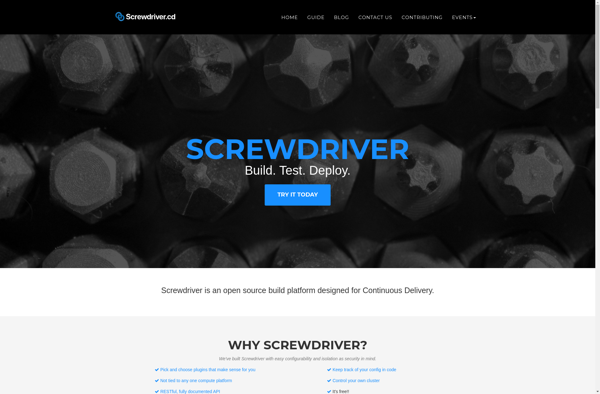Description: Screwdriver is a lightweight open source continuous delivery and release automation platform. It helps developers easily build, test, and deploy their code and facilitates faster and simpler delivery of apps and services.
Type: Open Source Test Automation Framework
Founded: 2011
Primary Use: Mobile app testing automation
Supported Platforms: iOS, Android, Windows
Description: CircleCI is a continuous integration and delivery platform that helps developers automate building, testing, and deploying applications. It offers cloud-based infrastructure for running jobs in Linux containers along with insights through analytics and monitoring.
Type: Cloud-based Test Automation Platform
Founded: 2015
Primary Use: Web, mobile, and API testing
Supported Platforms: Web, iOS, Android, API

